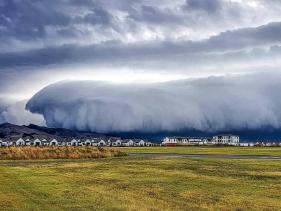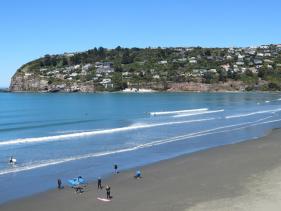
Below is a link to Met Service Traffic Cams for Christchurch
Christchurch weather report
For a 10 day forecast for the local area click here.
Climate in Christchurch
Christchurch has a temperate oceanic climate. Christchurch enjoys a relatively dry climate with rain falling on fewer days than New Zealand’s other major cities.
On average, Christchurch has 2100 hours of sunshine per year. The average annual rainfall for Christchurch is 648mm.
The climate is comfortable all year round, although winter nights can be chilly and frosts are much more common in Christchurch than in Wellington or Auckland.
Our great city enjoys four seasons. Autumns are glorious colours and normally settled producing some fantastic days before moving into winter. In winter it is common for the temperature to fall below 0 °C (32 °F) at night and be followed by a crisp clear day with blues skies. Snow falls can occur once or twice a year mostly in the Port Hills or in the towns outside of Christchurch. When snow does land in the city itself generally it won’t settle for long. Spring brings unsettled weather, however Christchurch is known as the garden city of New Zealand so the blossoms are in full glorious colour providing for some stunning photographs.
Generally spring leads into dry warm summers with low rainfalls providing plenty of good days to enjoy the typical Kiwi culture of BBQ’s, beaches and fun.
Strength of the sun is the main weather hazard faced by Christchurch’s residents particularly in summer.
In the height of summer the UV index in New Zealand is very high. You’ll burn more easily in New Zealand than most other places in the world so having a good sun screen, sunglasses and a hat is very important.
Reasons being are:
- The closest point of approach of the Sun to the Earth occurs in December/January, which is the southern hemisphere summer.
- During the summer months, there is a lot less ozone in the southern hemisphere than in the northern hemisphere.
- There is also less air pollution in New Zealand to block the UV rays.













